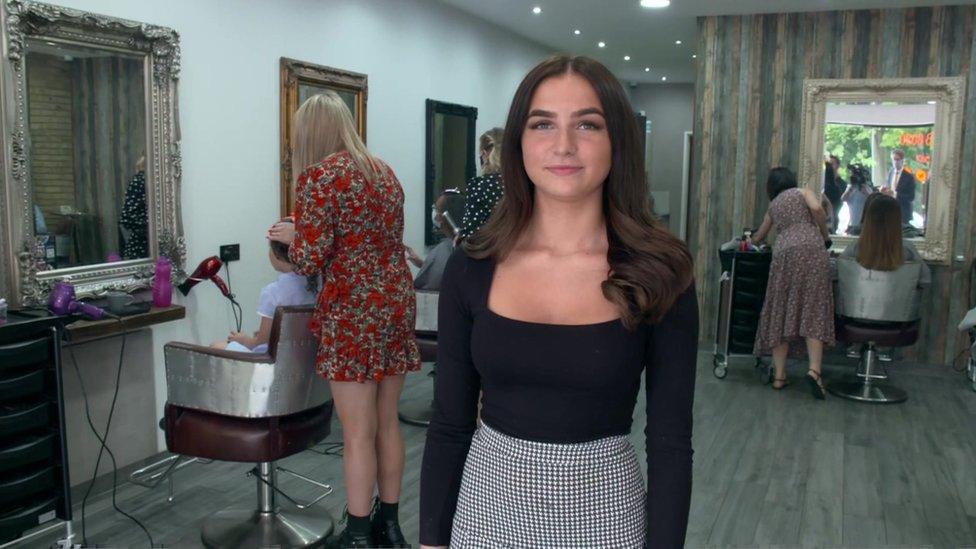Hairdressing apprentice numbers continue to drop
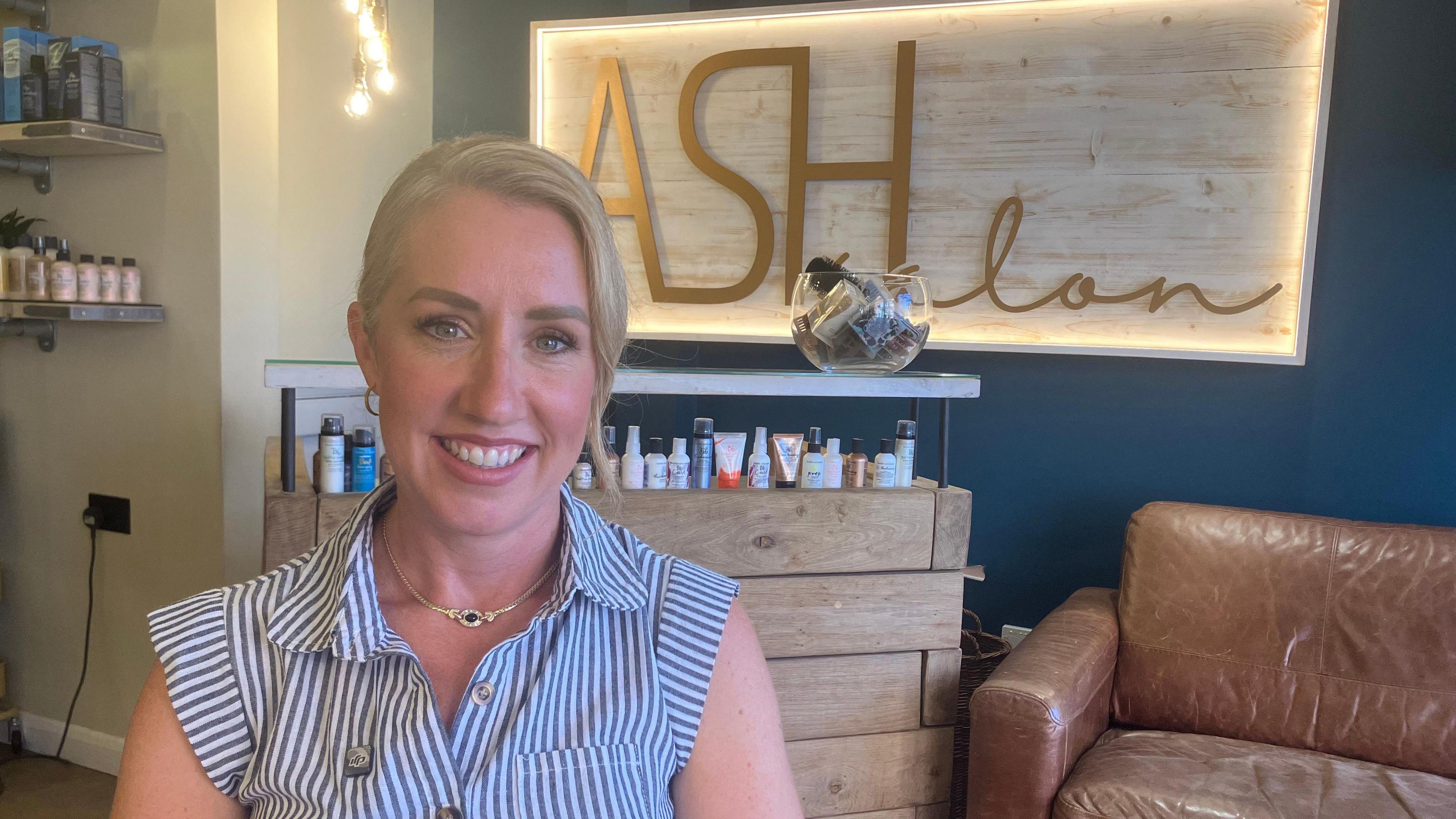
Salon owner Ellie Pack says she thinks there is a number of reasons people are not taking on apprenticeships
- Published
The number of people taking up apprenticeships in hairdressing and barbering in the UK has fallen by 19% since 2021, according to the National Hair and Beauty Federation (NHBF).
The statistics come from the NHBF's latest report for 2024, which uses government data.
Ellie Pack, a salon owner in Topsham, Devon said she believed one of the reasons for the decline was because the job was not well-paid enough, and said it could be devastating for the industry if the numbers continued to decrease.
A spokesperson for the Department for Education said the government would work to "find and fill skills gaps" across England.
Ms Pack, who owns Ash Salon, said she was no longer taking on apprentices.
'No attention span'
The salon owner said the job was "not well-paid" and she thought this had had an effect on the number of people who wanted to take up apprenticeships, or complete them.
"Everyone who's into hairdressing does it because they really love it and it's a passion, and you've got to be really wanting to do it," she said.
"It is really hard work, it is a graft.
"We can't pay the apprentices or stylists any more because most salons are small businesses and, when you have to give 20% of your turnover to the VAT, it's just really difficult to make a big enough profit to increase wages."
She said she felt there was also a "stigma".
She said: "In schools or colleges, it's still thought of as if you're not academic; you can have this fall-back of just doing hair and beauty.
"It needs to be promoted as a good achievement and something decent to do as a career. It's so multi-skilled and there's so much more to it than just hair."
The hairdresser added she felt "there isn't the attention span or the stamina anymore".
She added: "The quality is going to get lower. I guess it will be more expensive [to get your hair done in the future] as well."
Gradual decline
In 2016 to 2017, 15,450 people started hairdressing and barbering apprenticeships in the country
By 2017 to 2018, the figure was 11,500, due to changes in apprenticeship standards and funding
In 2018 to 2019, there was another 13% drop with 10,000 people registering for the placements
Figures in 2019 to 2020 showed about 7,000 people started the on-the-job training - a drop of 30% compared to the previous year
The latest figures from the government and the NHBF revealed the number of hairdressing and barbering apprenticeships in England fell again for 2021 to 2022 to 5,700
Source: National Hair and Beauty Federation
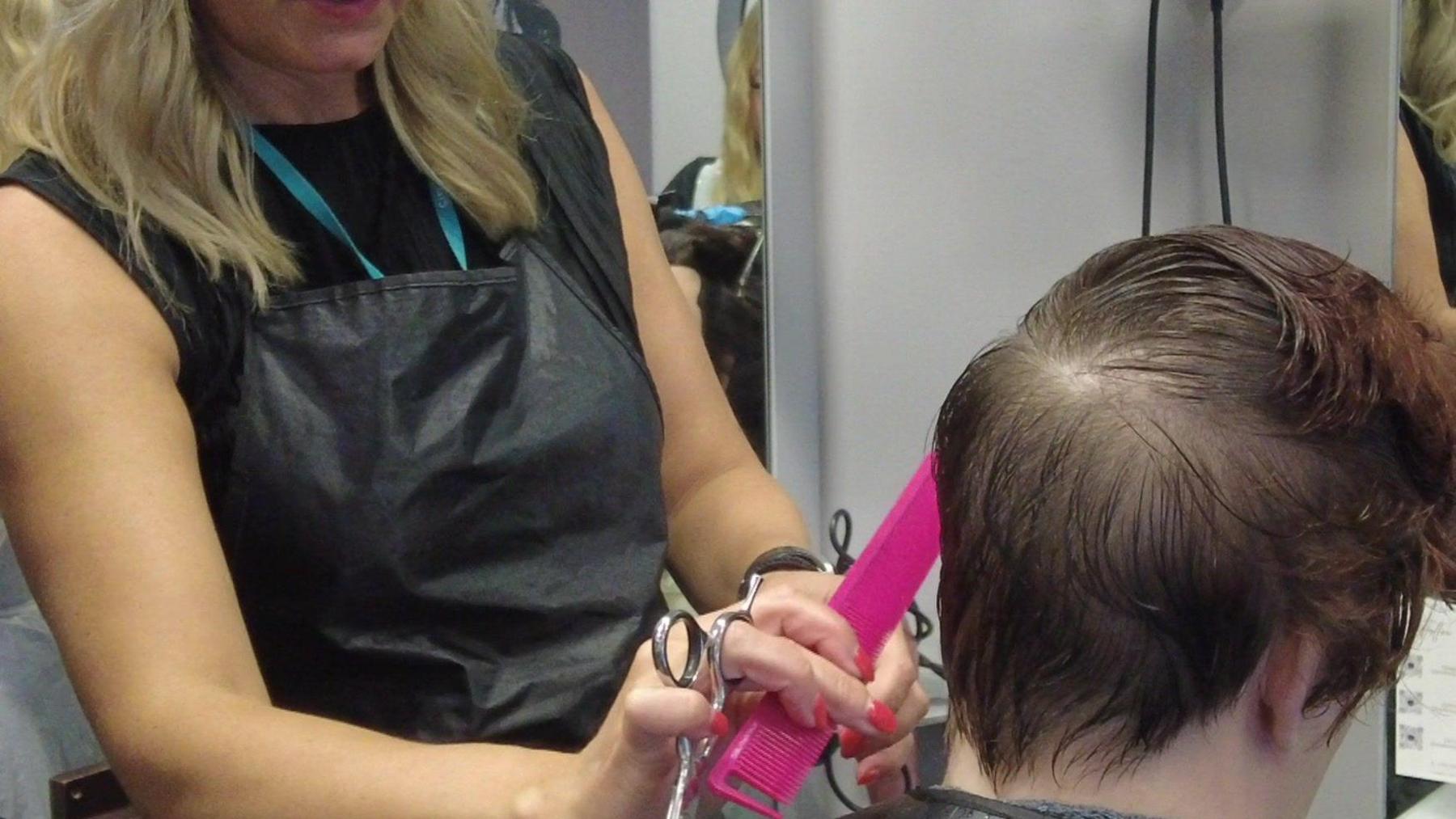
Statistics which show the drop in hairdressing apprentices come from the NHBF's latest report
Caroline Larissey, chief executive of NHBF, said there were a "number of factors" responsible for the drop in numbers.
"People are clocking into school for longer. Parents want their kids to go into colleges more as they're then keeping their benefits a bit longer."
She also said there was "negativity around coming into the sector" and salons needed "more incentive to take on apprentices".
She said she feared apprenticeships could be less appealing than "short sharp courses which will train someone in six weeks" that would leave hairdressers less qualified.
Such short courses were "not nationally-recognised qualifications, not up to industry standards, and that's what we'll get", Ms Larissey said.
'Raise the funding'
City College Plymouth in Devon offers hairdressing and barbering apprenticeships.
College CEO Jackie Grubb said that, although their apprenticeship figures in the sector had gone up since the Covid-19 pandemic, she wanted to see the government increase funding.
She said: "Hairdressing will never go away because most people need their hair cut - it's something that will never die.
"But I would really like to see much more confidence in the hairdressing profession and for the government to actually raise the funding behind an apprenticeship and delivering an apprenticeship."
Ms Grubb said hairdressing may not appeal due to low wages and people may "feel they can earn salaries in different places".
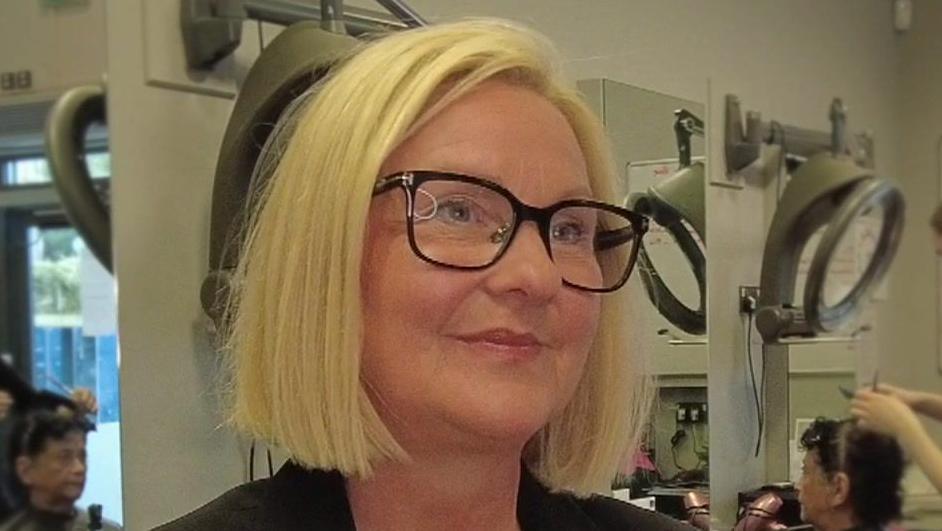
Jackie Grubb, City College Plymouth CEO, says she wants more government funding for apprenticeships - specifically hairdressing
Sarah Rose-Vernon, 21, started a hairdressing apprenticeship at the college in May last year and has been working part-time at a salon alongside her studies.
She said: "You get paid while you're learning. It's amazing. I've managed to create a relationship with my future employer. I'm chipping in.
"You don't realise you're learning when you're on the job, but after the week my mum asks me what I did this week and I'll say: 'I've put a toner on,' things like that."
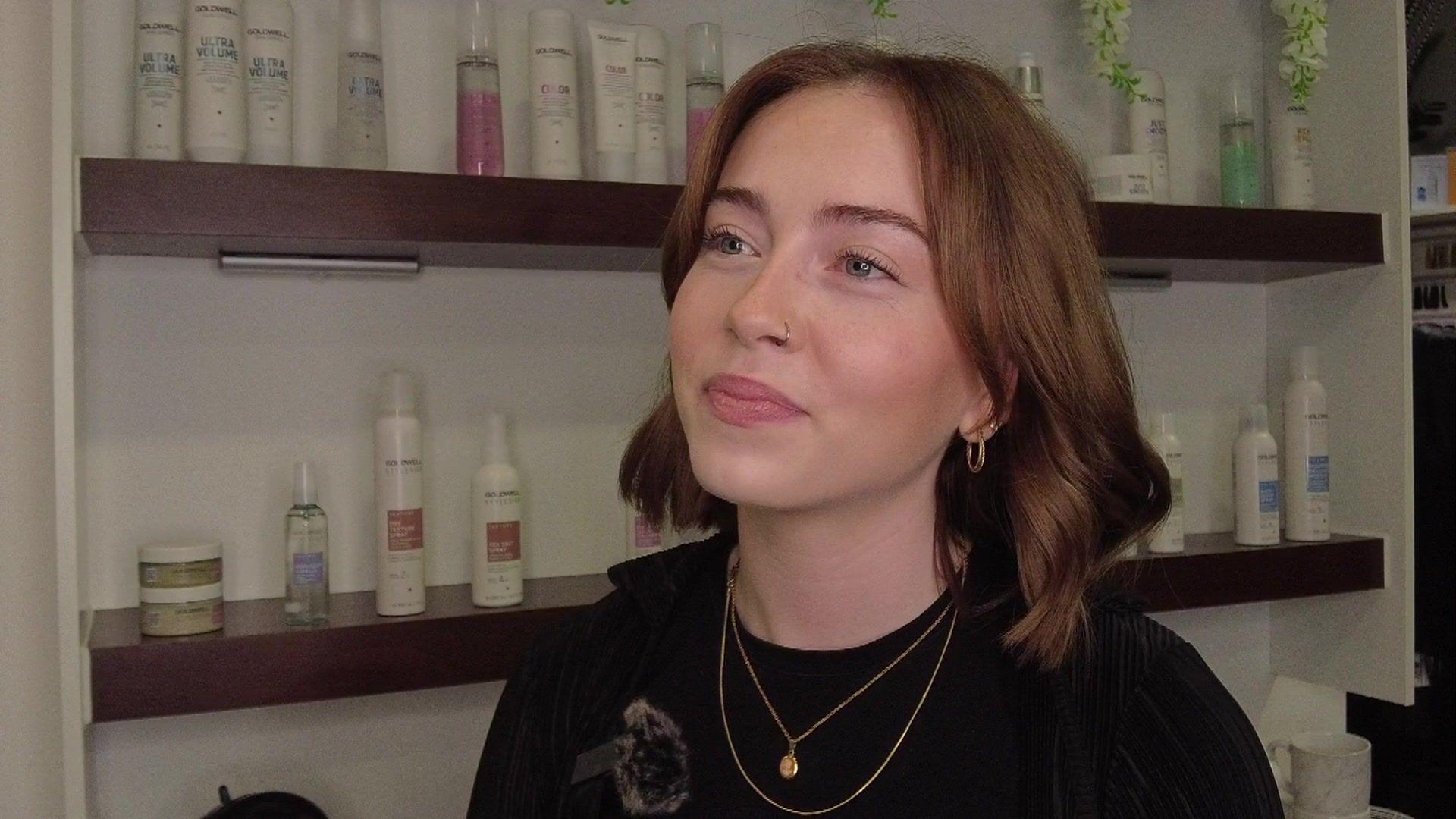
Sarah Rose-Vernon has been earning money while doing her apprenticeship
A Department for Education spokesperson said it was "high-time" apprenticeships and skills training was "taken seriously".
They said: "We will unlock opportunities for our young people to harness their talents and grow our economy."
They added: "We will work with businesses, unions, mayors and training providers to find and fill skills gaps across our country.”
Follow BBC Devon on X (formerly Twitter), external, Facebook, external and Instagram, external. Send your story ideas to spotlight@bbc.co.uk, external.
Related topics
- Published15 August 2024
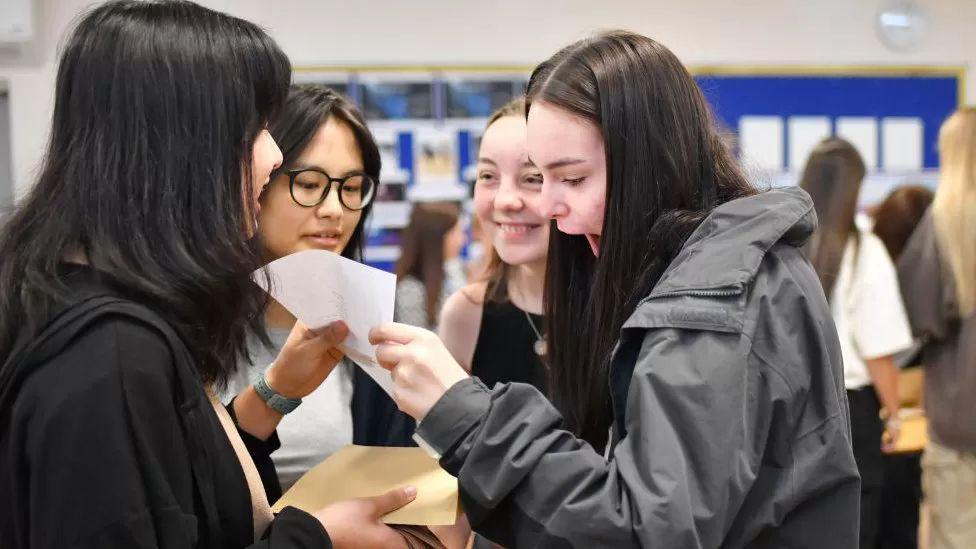
- Published26 June 2021
